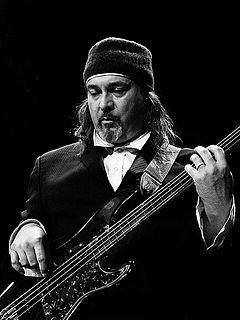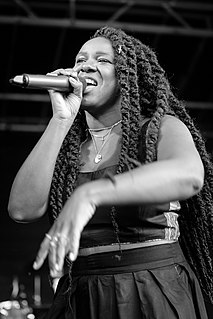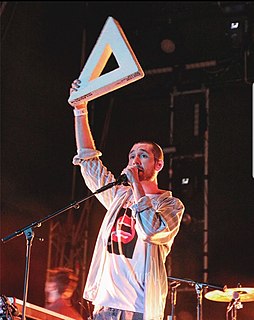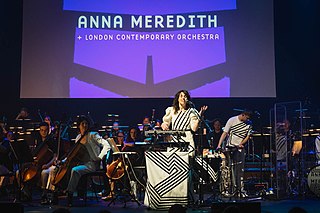A Quote by Max Richter
If there's loads of material going by you don't notice the individual things quite so much. Also it really foregrounds the sonic dimensions like electronic ambient music, it's pushes all of that colour to the foreground so you hear little every atom of sound.
Related Quotes
Ambient means the natural center or atmosphere of a space. All music has that in it- a space or center. I think it just means the atmosphere or what defines the environment of sound and maybe removing the more destructive, harsh elements and harder rhythmic elements and you get down to the stillness that's inherent. There's an ambient quality in every sound. You may have to enhance that to hear it or bring it out in a different way but there is that in every environmental sound.
I'm not sure I'm going to be that type of artist but I do love cultural icons. Like Solange has been really great at that. Releasing her album end of last year and being really strong in their sound, bands like Little Dragon, artists like James Blake. You know their music when you hear them. They have a really particular sound and it's really cultural and people copy that sound. You hear it in other songs and you're like 'That's a James Blake tune'.
I'm trying to fly the flag for the days of electronic music where people who are making it are also building the gear because that was what was happening in the very early days of electronic music. And that spirit is one of the things that really appeals to me about electronic music so I'm putting this forward as a way to keep that.
My music doesn't really sound like punk music, it's acoustic. And it doesn't really sound like folk music 'cause I'm thrashing too hard and emoting a little too much for the sort of introspective, respectful, sort-of folk genre thing. I'm really into punk and folk as music that comes out of communities and is very genuine and very immediate and not commercial.
A lot of people ask me where music is going today. I think it's going in short phrases. If you listen, anybody with an ear can hear that. Music is always changing. It changes because of the times and the technology that's available, the material that things are made of, like plastic cars instead of steel. So when you hear an accident today it sounds different, not all the metal colliding like it was in the forties and fifties. Musicians pick up sounds and incorporate that into their playing, so the music that they make will be different.







































